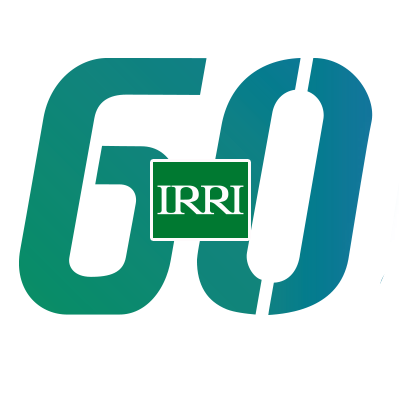IRRI research focuses on ways to increase rice production, for the next decade and into the 21st century. Our new program structure and work plan, developed in 1989 in consultation with scientists, policymakers, collaborating research institutions, and development-oriented, nongovernmental organizations, identified four important concerns: sustainability, equity, research strengthening, and advanced approaches.
IRRI research focuses on ways to increase rice production, for the next decade and into the 21st century. Some of the work has a far horizon: knowledge gained in rice genetics will enable scientists to do more to increase future rice productivity, both through breeding even higher-yielding rice varieties and through designing more efficient systems of crop management.
 Some research results can be used immediately improved methods of applying fertilizer increase yields and save input from increased productivity, now and into the future. IRRI research programs center on the world’s major rice-growing ecosystems, with a cross-ecosystems program for work that spans the environments. In each program, interdisciplinary scientific teams work to solve critical rice production problems.
Some research results can be used immediately improved methods of applying fertilizer increase yields and save input from increased productivity, now and into the future. IRRI research programs center on the world’s major rice-growing ecosystems, with a cross-ecosystems program for work that spans the environments. In each program, interdisciplinary scientific teams work to solve critical rice production problems.
Collaboration is an important research strategy. Many problem-focused research projects are carried out in partnership with scientists elsewhere, in advanced laboratories, and in national system field experiments. All the work will build on the results of IRRI’s earlier research, in 1989 and the years before.
IRRI identified four important concerns in its strategy: sustainability, equity, research strengthening, and advanced approaches.
Our new program structure and work plan, developed in 1989 in consultation with scientists, policymakers, collaborating research institutions, and development-oriented, nongovernmental organizations, reflect these concerns.
To emphasize the importance of environmental factors, we restructured our research into interdisciplinary programs focused on major rice-growing ecosystems. Research teams are characterizing ecosystems, diagnosing their constraints and potentials, and setting research priorities.
This process will ensure that IRRI work is relevant to the needs of users and beneficiaries of the research results. It also will help define the best locations for collaborative research with our national partners and the criteria for screening and evaluating technology. This will ensure that new technologies will at least maintain, and we hope, improve, the natural resource base while meeting the objectives of efficiency and equity.
Intensive agricultural systems can produce more than 5 tons per hectare, per rice crop. Continuously cropped irrigated rice lands often produce more than 12 tons per hectare a year. But such intensive cropping removes nutrients from the soil faster than they can be replaced. Thus, sustainability is of the highest priority.
The efficiency of input use, particularly nitrogen, must be improved dramatically. We plan to do this by developing biological sources of nitrogen. By improving application methods to increase the efficiency of fertilizer use and by matching nutrient release to crop demand. We will stress the development of integrated pest management technologies that will minimize pesticide use.
Our concern for equity is explicit in IRRI’s objective to improve returns to farmers while keeping production costs low enough to protect the rapidly increasing number of urban consumers. In the interest of equity, we are giving special attention to the less favorable ecosystems. We also seek to increase employment in postharvest processing and using by-products.
The role of women in rice production and the impact of new technologies on female employment and income have been evaluated. Special efforts are being made to ensure that data research results collected on-farm to design new technology are gender-differentiated. Affirmative action in recruiting and in selecting candidates will include more women.
IRRI’s research is enhanced by and contributes to strong national natural rice research systems. We will continue our shift to stronger research collaboration with national programs to knowledge exchange with our partners in a global rice research system.








